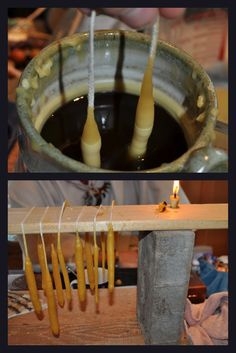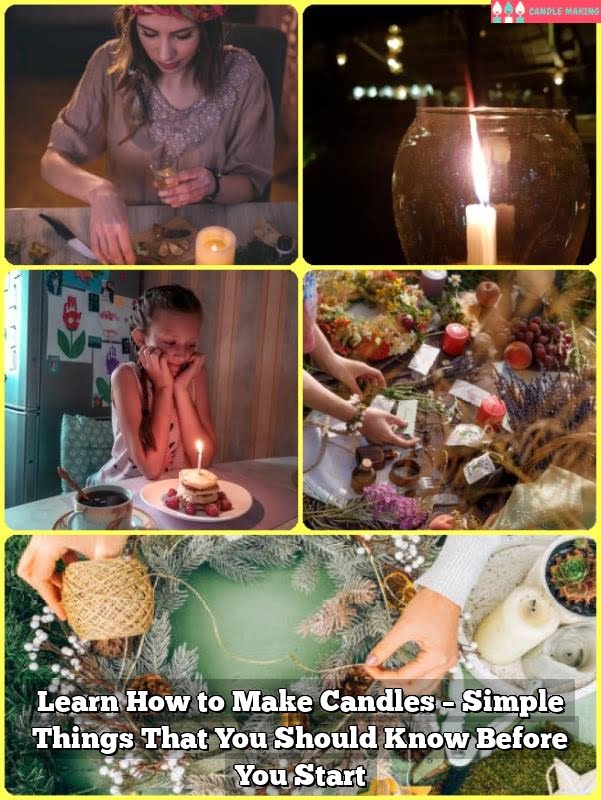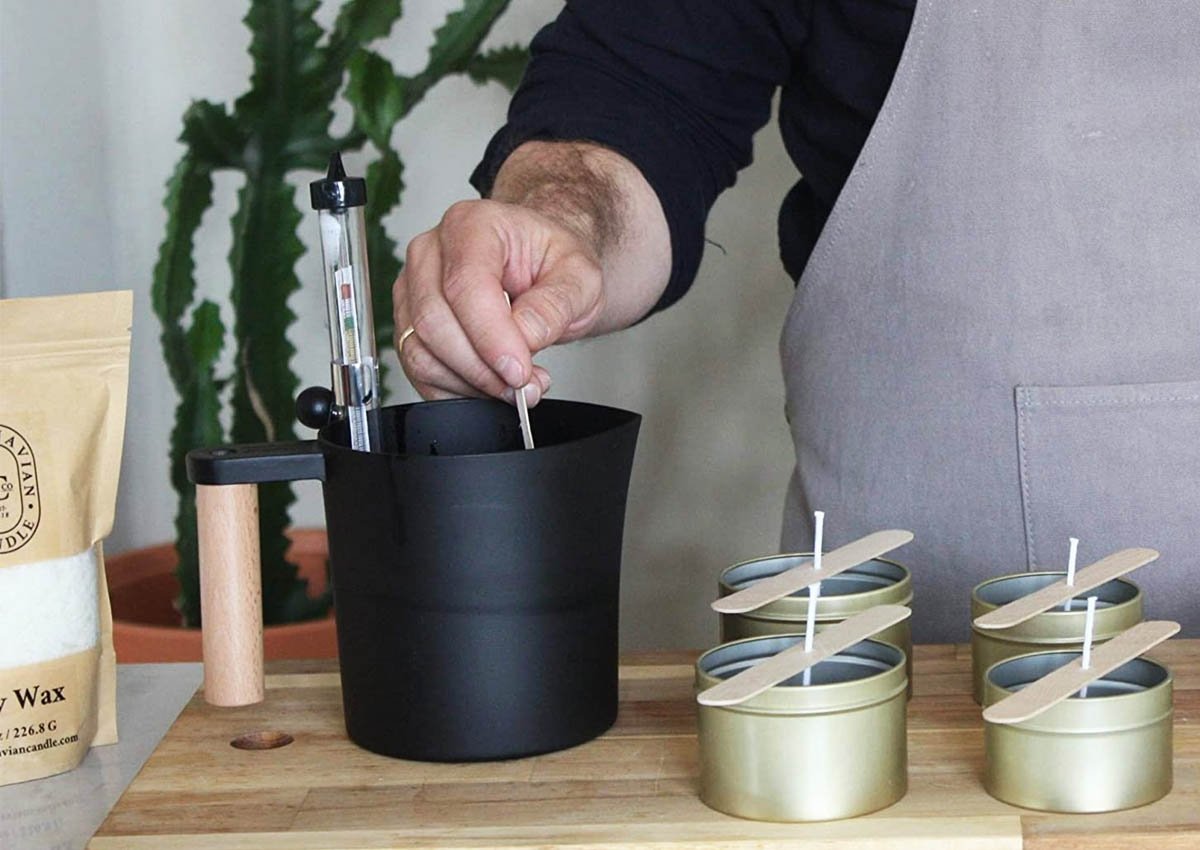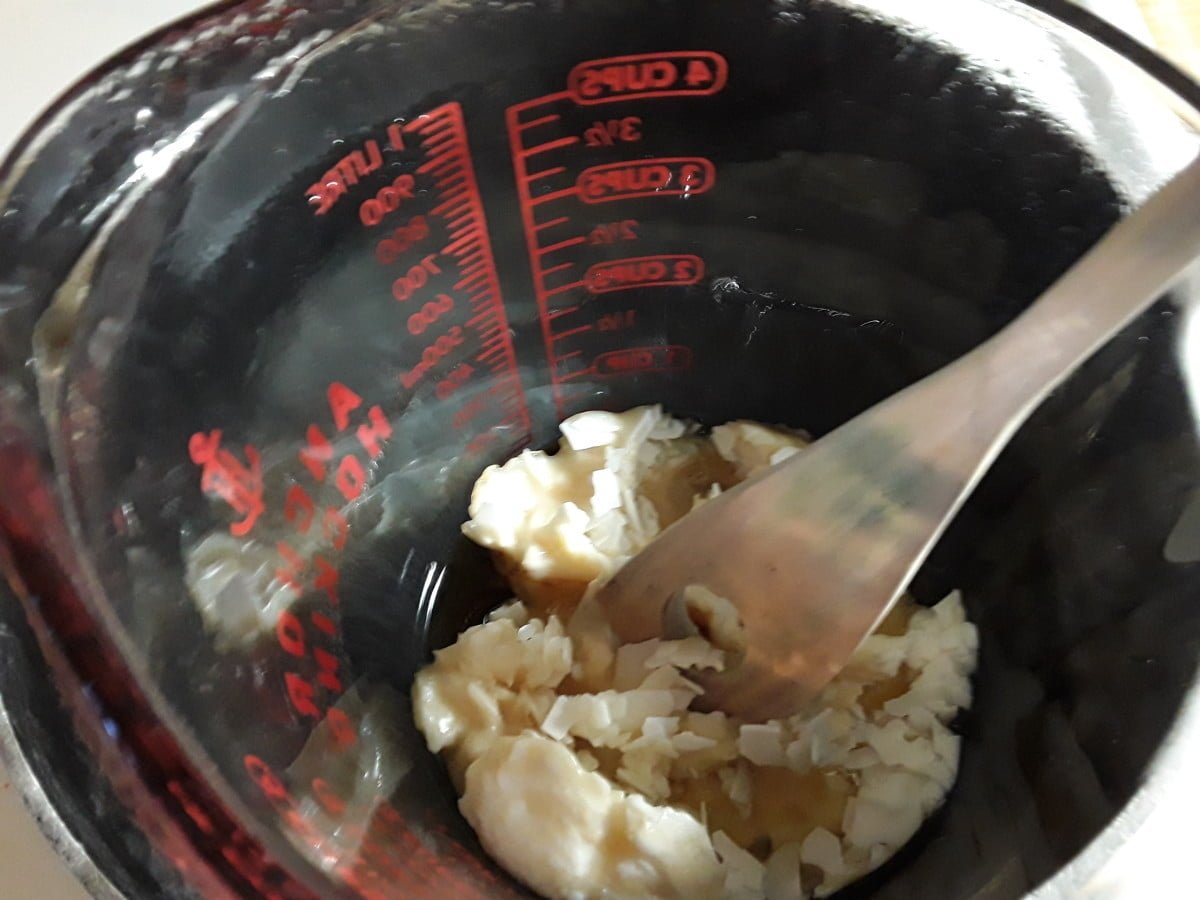Are you interested in joining the growing trend of creating your own candles? If so, there are a few things you need to start making candles, and we’ll cover them all in this article.
Candle making has become increasingly popular as people seek out creative ways to express themselves and enjoy the satisfaction of crafting their own home decor. Whether you’re looking for a new hobby or hoping to start a small business, candle making can be a fulfilling and enjoyable activity.
The art of candle making allows individuals to unleash their creativity while creating unique and personalized candles for themselves or as gifts for others. The process of designing and handcrafting candles is not only gratifying but also offers the chance to fill living spaces with soothing scents and warm, ambient light. From choosing the perfect wick to experimenting with different types of wax and fragrances, candle making enthusiasts take pleasure in every step of the process.
In this section of our article, we’ll dive into the essentials needed to embark on your candle making journey. From discussing the necessary supplies for beginners to exploring where to find quality candle-making supplies, we’ll provide you with all the information you need to get started. So if you’re ready to explore the world of candle making and experience the joy that comes from creating your own beautiful candles, read on.
Essential Supplies for Candle Making
When it comes to making your own candles, there are a few essential supplies that you will need to get started. Here is a detailed list of the things you need to start making candles:
- Wax: The most important supply for candle making is, of course, the wax itself. There are several types of wax to choose from, including paraffin wax, soy wax, and beeswax.
- Wick: You will also need wicks for your candles. Wicks come in different sizes and materials, so be sure to choose the right type for the size and type of candle you want to make.
- Fragrance Oils or Essential Oils: If you want scented candles, you will need fragrance oils or essential oils to add a pleasant aroma to your creations.
- Dyes or Pigments: If you want colored candles, consider getting dyes or pigments specifically made for candle making.
- Containers or Molds: Depending on the type of candles you want to create, you may need containers like mason jars or tins, or molds if you plan on making pillar or votive candles.
- Double Boiler: A double boiler is essential for safely melting your wax without direct heat contact.
Now that you know what things you need to start making candles, your next step is finding quality candle making supplies.
There are various online and physical stores that offer a wide range of candle making supplies at different price points. Do some research and read reviews before purchasing your supplies so that you can get the best value for your money.
Get ready to embark on an exciting journey into the world of candle making with these essential supplies by your side.
Different Types of Wax for Candle Making
When it comes to making candles, choosing the right wax is essential for achieving the perfect candle. There are various types of wax available in the market, each with its own set of pros and cons. Understanding the differences between these waxes will help you make an informed decision on which one is best suited for your specific candle making needs.
One popular type of wax used in candle making is soy wax. Soy wax is derived from soybean oil and is known for its clean-burning properties. It has a lower melting point, which means that it can produce a longer-lasting candle. Additionally, soy wax is also eco-friendly, making it a popular choice for environmentally conscious candle makers.
Another common type of wax used in candle making is paraffin wax. Paraffin wax is derived from petroleum and is widely available and affordable. It has a high fragrance load capacity, which means that it can hold a larger amount of fragrance oils, resulting in highly scented candles. However, some people may prefer to avoid paraffin wax due to its non-renewable source and potential environmental impact.
In addition to soy and paraffin wax, there are also other types of waxes such as beeswax and palm wax. Beeswax is known for its natural honey scent and clean-burning properties, while palm wax produces unique crystal patterns when solidified, adding an aesthetic appeal to candles. Each type of wax has its own set of characteristics and benefits, so it’s important to consider your specific preferences and priorities when choosing the right wax for your candles.
Essential Tools for Candle Making
When it comes to making candles, having the right tools is essential for a successful and enjoyable experience. From measuring out ingredients to safely heating wax, there are a few important items that every aspiring chandler should have in their toolkit. Here, we’ll take a closer look at the essential tools you’ll need to start making candles.
Double Boiler or Melting Pot
One of the most important tools for candle making is a double boiler or melting pot. This allows you to safely melt your wax without direct heat, reducing the risk of accidental fires or burns.
A double boiler consists of two pots – one larger pot filled with water, and a smaller pot nestled inside it holding the wax. If you don’t have a double boiler, you can create a makeshift one by placing a heatproof bowl over a saucepan of simmering water.
Thermometer
A thermometer is crucial for ensuring that your wax reaches the correct temperature when melting and cooling. Different types of wax require different temperatures for optimal results, so having an accurate thermometer on hand will help you achieve the perfect consistency for your candles.
Molds and Containers
Depending on the type of candles you want to make, you will need molds or containers to shape your wax. If you’re making pillar candles, cylindrical molds are essential, while container candles require heat-resistant vessels such as glass jars or tins. Make sure to choose high-quality molds and containers that are specifically designed for candle making to ensure professional-looking results.
Other Essential Tools
In addition to the above-mentioned tools, there are several other items that are indispensable for candle making. These include stirring utensils like wooden skewers or chopsticks, a scale for precise measurement of ingredients, and a wick holder or centering device to keep your wick in place while the wax sets. Having these basic tools will set you up for success in your candle making endeavors.
So when purchasing things needed to start making candles be sure not too forget any of these items including several others that might be specific according how would be better suitable for what kind of candle do someone wants to create.
Fragrance Oils and Essential Oils for Candle Making
When it comes to making candles, fragrance oils and essential oils are essential components that can enhance the overall experience of candle making. Whether you want to create a calming, soothing atmosphere or a refreshing, invigorating ambiance, selecting the right scent is crucial for achieving your desired result. Here’s a breakdown of the things you need to start making candles with fragrance oils and essential oils:
- Variety of Scents: One of the most exciting aspects of candle making is choosing from a wide variety of fragrances and essential oils to add to your candles. From floral and fruity scents to earthy and woody aromas, the options are endless.
- Measurement Tools: To ensure that your candles have the perfect amount of fragrance or essential oil, it’s important to have accurate measurement tools such as droppers or graduated cylinders on hand.
- Quality Oils: Using high-quality fragrance oils and essential oils is crucial for creating long-lasting and pleasant-smelling candles. Look for reputable suppliers that offer pure and concentrated oils without any additives.
In addition to adding delightful scents to your candles, it’s important to understand how to properly measure and use fragrance and essential oils in your candle-making process. Always follow recommended guidelines for oil-to-wax ratios to avoid overpowering or underwhelming scents in your finished products. With careful selection and proper usage, fragrance oils and essential oils can elevate your candle-making experience to new heights of creativity and enjoyment.
Choosing the Right Wicks for Your Candles
When it comes to candle making, choosing the right wick is crucial in ensuring that your candles burn properly and efficiently. The type of wick you use can affect the overall performance of your candle, including its burn time, scent throw, and wax consumption. Here are some essential tips for selecting the appropriate wick for different types of candles.
Understanding the Importance of Wick Selection
The wick plays a significant role in how a candle burns. It determines how much wax is consumed during each burn cycle and influences the size of the flame.
Choosing the wrong wick can result in issues such as tunneling (when a hole forms down the center of the candle) or excessive soot production. It’s essential to consider factors such as the diameter of your container, the type of wax you’re using, and any added fragrances when selecting a wick for your candles.
Tips for Selecting the Right Wick
To choose the right wick for your candle, consider factors like the diameter of your container and the type of wax used. For smaller diameter containers, such as tea lights or votive candles, a smaller, thinner wick is usually appropriate. Larger containers or pillar candles may require thicker wicks to ensure that they burn evenly across the entire surface. Additionally, different types of wax may require specific types of wicks to achieve optimal burning results.
Testing and Fine-Tuning
It’s important to conduct testing when selecting a wick for your candles. This involves making several test candles with different types and sizes of wicks to see which one performs best in terms of burn quality, scent throw, and overall appearance.
Keep detailed notes on each test candle, including observations about how it burns and any potential issues like mushrooming at the top of the wick or excessive smoking. This process may require some trial and error but is essential in fine-tuning your candle-making process.
By understanding the importance of selecting an appropriate wick for your candles and following these tips for choosing one effectively, you can ensure that your homemade candles burn beautifully and effectively every time.
Safety Tips for Candle Making
When it comes to candle making, safety should always be the top priority. Working with hot wax and open flames can present potential hazards, but by following some simple safety tips, you can enjoy the candle making process without any worries.
First and foremost, it’s essential to work in a well-ventilated area to avoid inhaling any fumes from the melting wax. Additionally, always have a fire extinguisher within reach in case of any emergencies. It’s also crucial to keep children and pets away from your workspace to prevent accidents.
Another important safety measure is to use proper protective gear while making candles. This includes wearing long sleeves to protect your skin from hot wax splatters and using heat-resistant gloves when handling hot containers or molds.
Moreover, never leave melting wax unattended – always stay with it until it has fully melted and be extra cautious when working with heat sources such as hot plates or double boilers.
Here are a few more essential safety tips for candle making:
- Avoid overheating the wax
- Use a candy thermometer to monitor the temperature of the melted wax
- Be cautious when adding fragrance oils and essential oils
- Keep flammable materials away from heat sources
By following these safety measures, you can ensure an enjoyable and risk-free candle making experience.
| Safety Tips | Description |
|---|---|
| Work in a well-ventilated area | Avoid inhaling fumes from melting wax |
| Use proper protective gear | Wear long sleeves and heat-resistant gloves |
| Avoid overheating the wax | Monitor the temperature with a candy thermometer |
| Cautious when adding fragrance oils | Prevent accidental spills or splatters |
Troubleshooting Common Candle Making Problems
When starting out on your candle making journey, it’s important to be prepared for some common problems that may arise during the process. This section will cover some of the most frequent issues encountered by beginners and provide helpful tips for troubleshooting them.
One common problem that many new candle makers face is uneven cooling or “sinkholes” in their candles. This can occur when the wax cools too quickly, leaving a hole in the center of the candle.
To avoid this, make sure to pour your wax at the proper temperature and avoid drafts that can cause uneven cooling. If sinkholes do occur, you can use a heat gun to carefully warm the surface of the candle and fill in the hole with additional melted wax.
Another common issue is air bubbles forming in the wax as it cools, which can affect the appearance of your finished candle. To prevent air bubbles, try gently tapping the sides of the container as you pour the wax to release any trapped air. If air bubbles still appear, you can use a heat gun or lighter to carefully melt and smooth out the surface of the candle.
One other frequent problem is wick-related issues such as tunneling or smoking. Tunneling occurs when a candle burns down the center, leaving excess wax along the sides. To prevent this, make sure to trim your wick to the appropriate length before each use and allow enough time for a full melt pool to form on each burn.
Smoking can be caused by using a wick that is too large for your container or by burning your candle in a drafty area. Choosing the right wick size and burning your candles in a draft-free environment can help minimize smoking issues.
As you continue on your candle making journey, keep these troubleshooting tips in mind to help you overcome any problems that may arise along the way. Remember, practice makes perfect, and with time and experience, you’ll be creating beautiful candles with ease.
Conclusion
In conclusion, exploring the art of candle making is not only a rewarding and fulfilling hobby but also a practical skill to have. By understanding the essential supplies and tools needed for candle making, as well as the different types of wax, fragrance oils, and wicks available, you are equipped to start your own candle making journey. The satisfaction of creating your own unique candles with personalized scents and designs cannot be understated.
As you embark on your candle making journey, always remember that safety should be a priority. Be sure to follow important safety precautions when handling hot wax and using heat sources to avoid any potential accidents. Additionally, familiarize yourself with common candle making problems and their solutions to troubleshoot any issues that may arise during the process.
If you are ever in need of further guidance or inspiration for your candle making endeavors, there are numerous resources available online and in craft stores. Whether you prefer traditional candles or artisanal creations, the possibilities for creativity in this craft are truly endless. So gather your essential supplies, explore different wax types and scents, and enjoy the process of creating beautiful candles that bring warmth and light into your home.
Frequently Asked Questions
What Do I Need to Start Making My Own Candles?
To start making your own candles, you’ll need some essential supplies such as wax, wicks, fragrance oils, and a container to hold the candle. You’ll also need a heat source like a stove or a double boiler.
What Equipment Do I Need to Start Making Candles?
The equipment you’ll need to start making candles includes a melting pot or double boiler for melting the wax, a thermometer to monitor the temperature, molds or containers for shaping the candles, and tools like a wick trimmer and stir sticks.
What Is Needed to Start a Candle Business?
Starting a candle business requires careful planning and consideration of various factors such as creating a business plan, securing necessary permits and licenses, finding suppliers for materials, setting up an efficient workspace, and developing a marketing strategy to promote and sell your products. Additionally, having knowledge of candle-making techniques and safety practices is crucial for success in this industry.

Welcome to my candle making blog! In this blog, I will be sharing my tips and tricks for making candles. I will also be sharing some of my favorite recipes.





